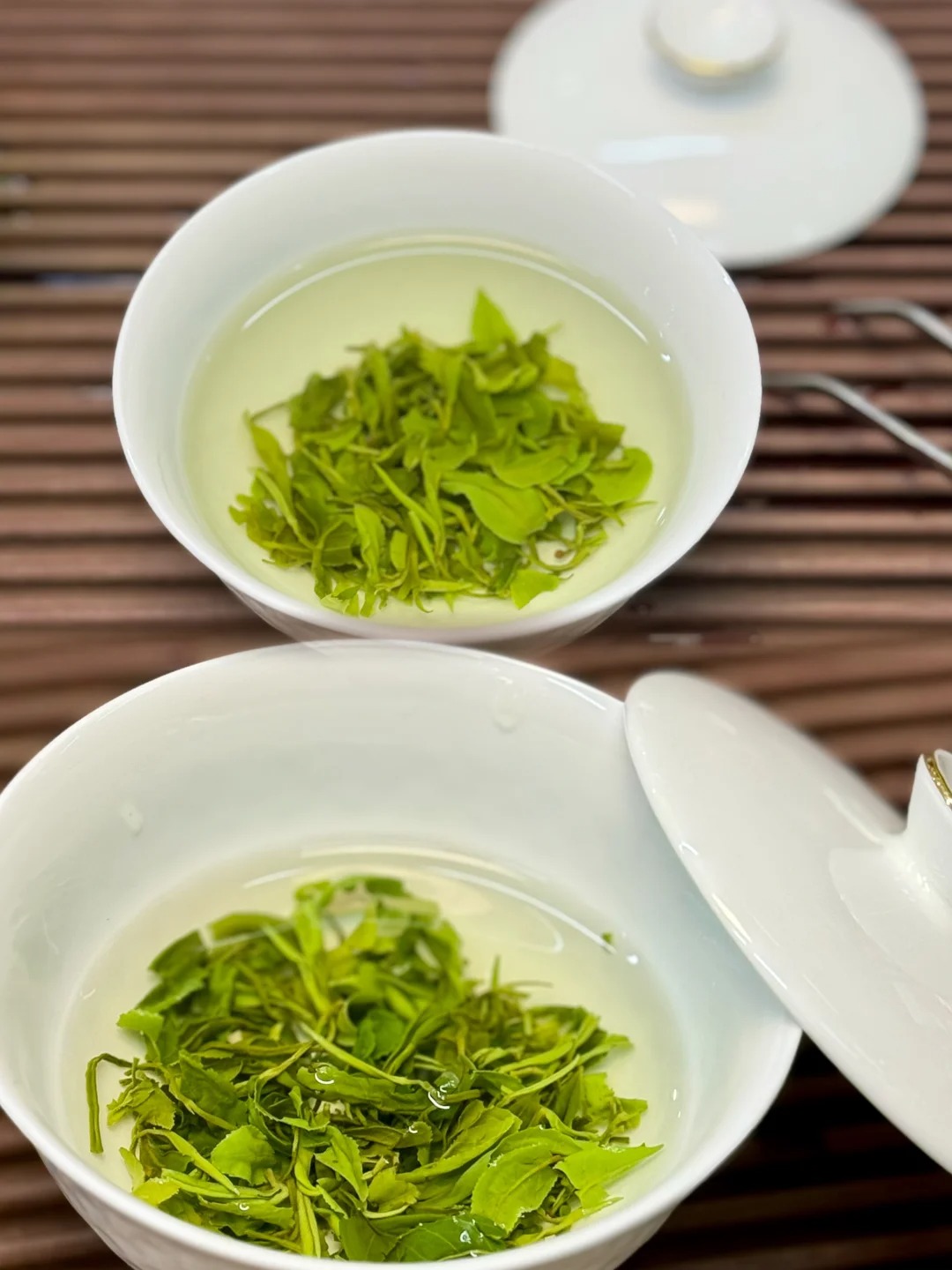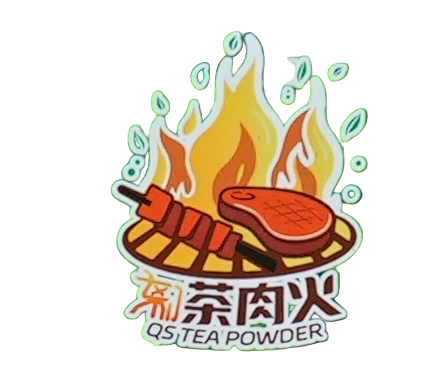Mount Tai, located in central Shandong Province, is famous for its breathtaking natural beauty and rich cultural heritage. Known as the "First of the Five Great Mountains," it is a symbol of Chinese civilization and an important cultural and natural heritage site listed by UNESCO. Mount Tai has been a place of pilgrimage for Taoism and Buddhism for centuries, with numerous temples scattered across the mountain. Since the time of Emperor Qin Shi Huang, emperors have held grand ceremonies here to honor the heavens and ensure peace. Today, Mount Tai continues to represent resilience and is a popular destination for visitors from around the world, offering both stunning landscapes and deep cultural significance.
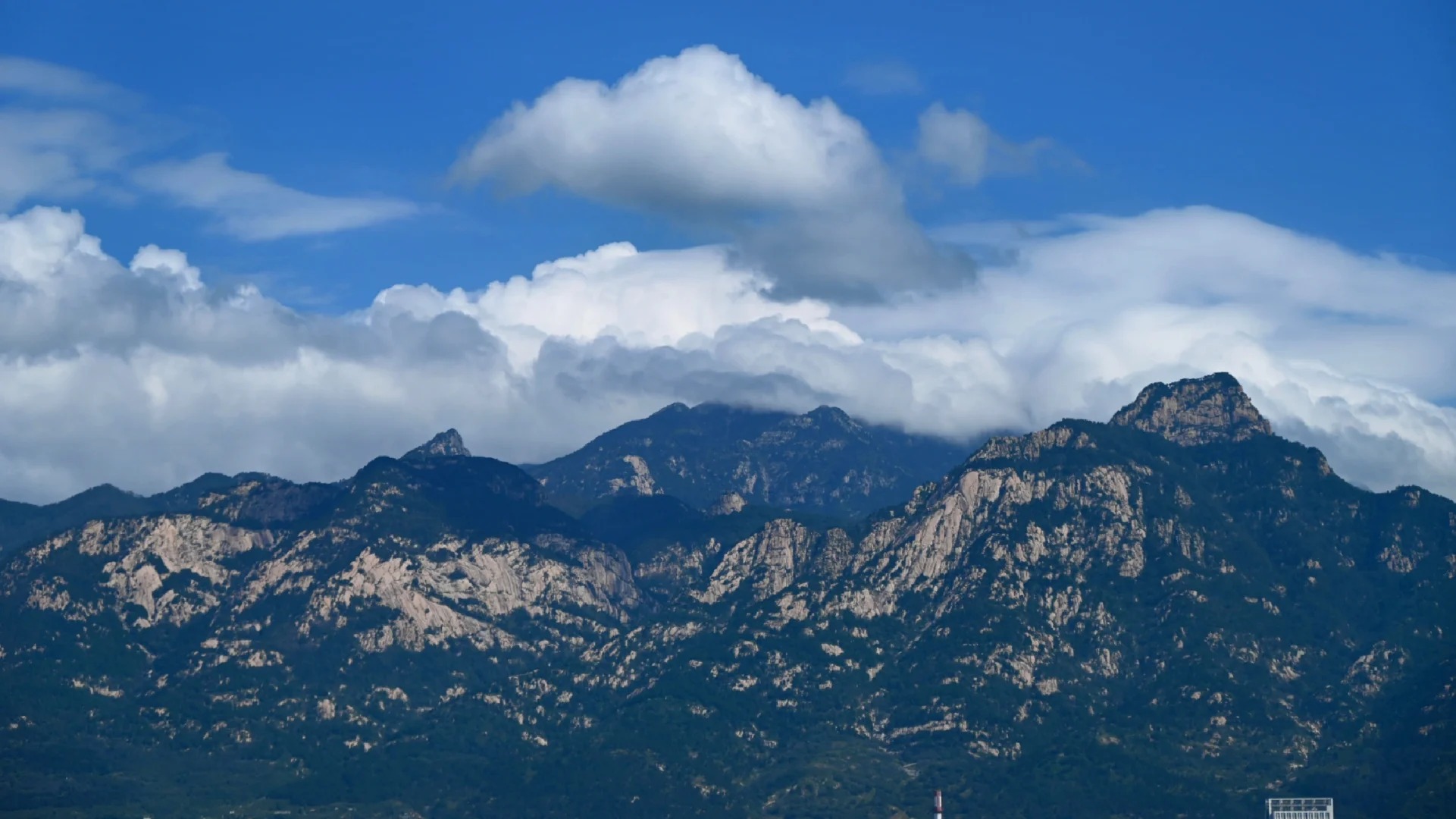
I. Mount Tai’s Natural Scenery and Cultural Relics
Mount Tai, known as the "First of the Five Great Mountains," is famous for its stunning nature and rich history. The most impressive sight is the sunrise over the sea of clouds, where the first light of day creates a magical scene. The mountain’s beauty changes with the seasons, with tall pine trees, strange rocks, and misty peaks forming a breathtaking view. Besides nature, Mount Tai is home to many important cultural sites. The South Gate of Heaven is a key landmark on the way to the top, while the Bixia Temple honors the Mountain Goddess. The Dai Temple, where emperors once prayed to heaven, holds great historical significance. Visitors can hike up to enjoy the views and ancient carvings, or take the cable car to Nantianmen for a spectacular view of the mountain.
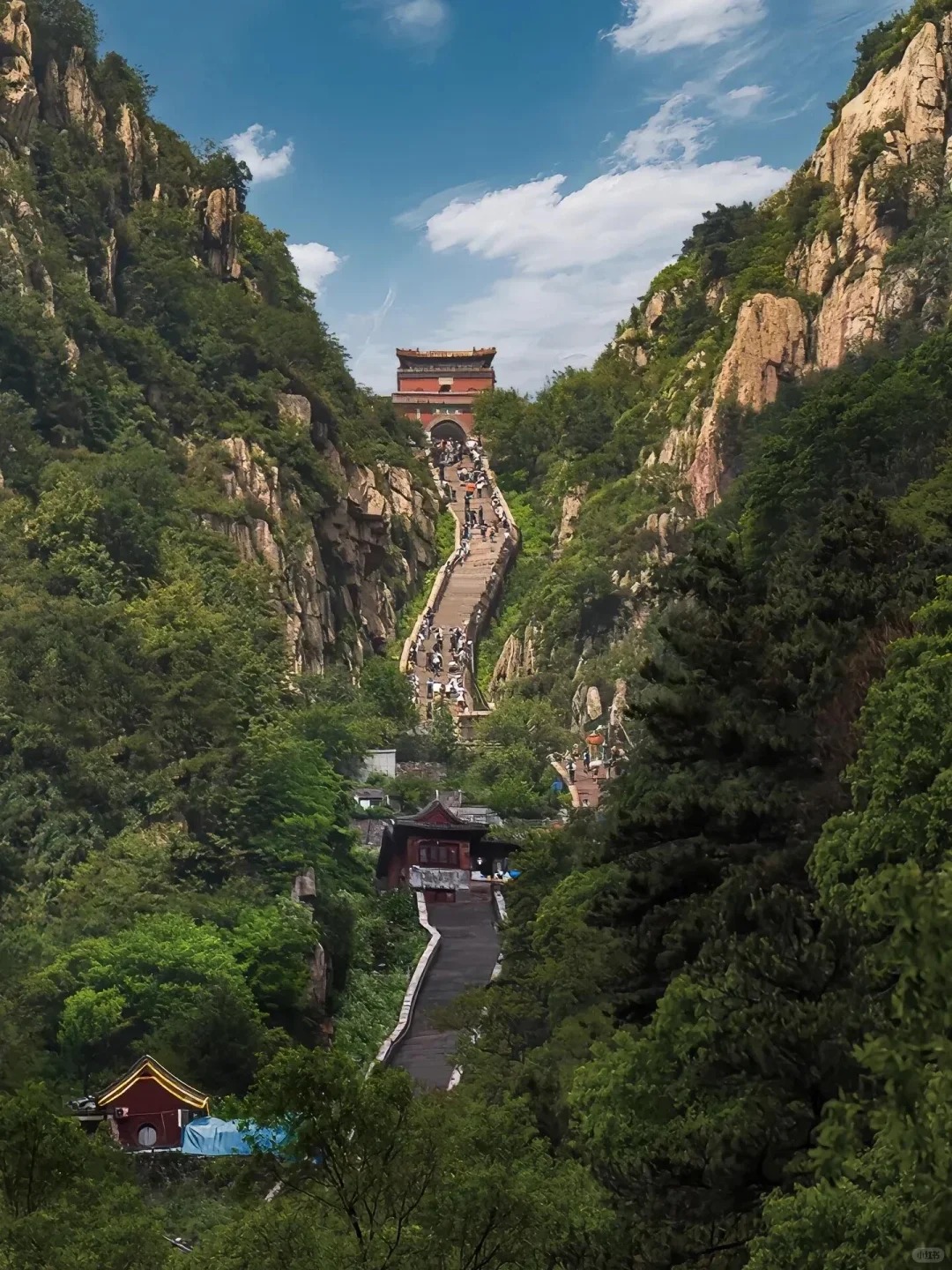
II. Tea Culture of Mount Tai
Mount Tai is not only a cultural landmark but also a renowned tea-producing region with a long history of tea cultivation. The mountain’s unique environment, with its high altitude, humid climate, and misty clouds, creates the perfect conditions for growing high-quality tea. As early as the Ming and Qing dynasties, Mount Tai tea was favored by officials and was even presented as a tribute to the imperial court. Today, Mount Tai tea continues to be made using traditional hand-picking and crafting methods, preserving its authentic aroma and flavor, and has become one of the mountain's specialties.
According to legend, there was once a hardworking and beautiful tea farmer girl living at the foot of Mount Tai. Every day, she carefully harvested fresh leaves from the mountain, brewing tea with pure spring water. The fragrance of the tea was so delightful that a passing scholar, after tasting it, praised its sweet and lasting flavor, calling it "Tai Mountain Daughter Tea," symbolizing its pure and fresh qualities. This legend added to the tea’s cultural charm and made it a must-try for visitors to the mountain.
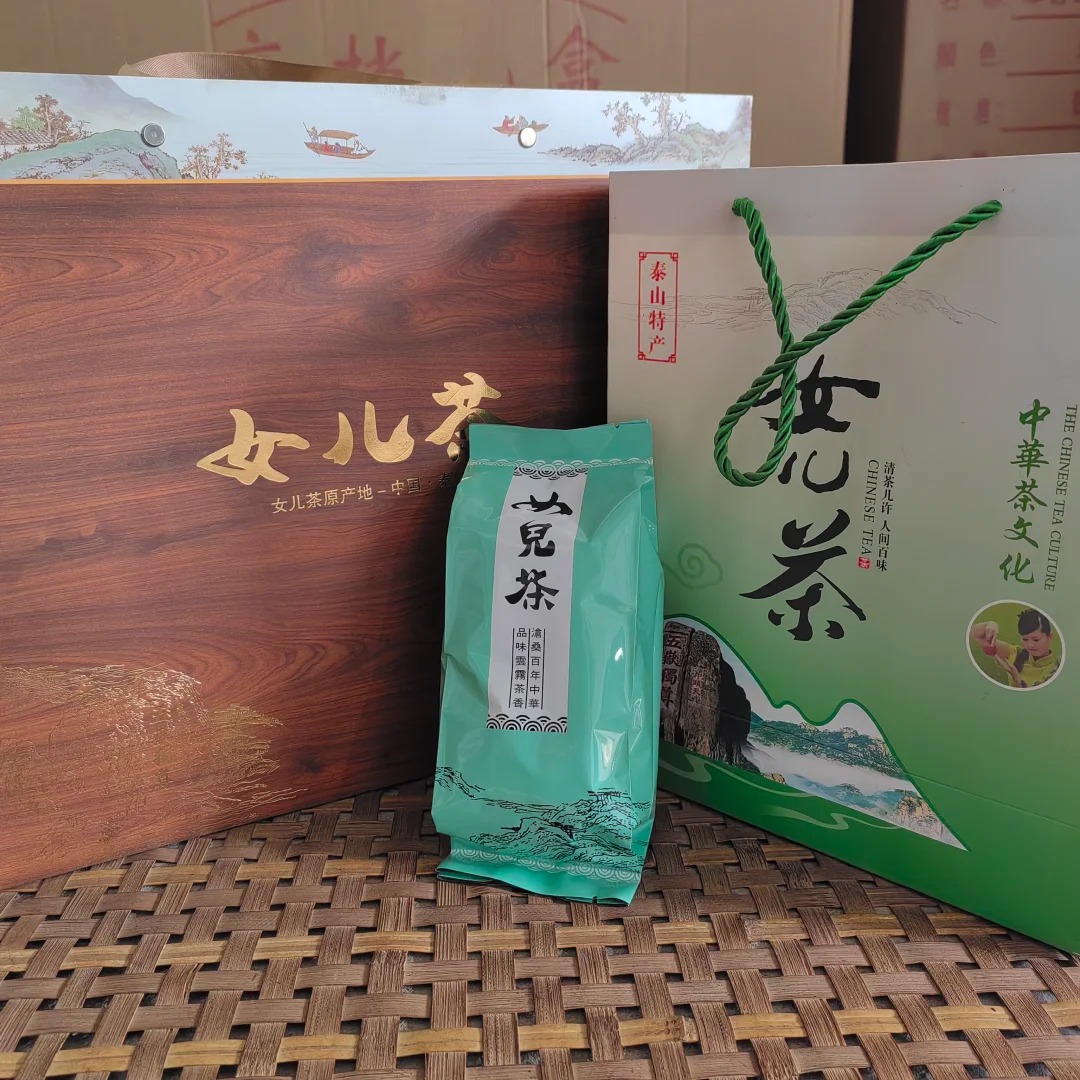
Mount Tai tea includes varieties like "Tai Mountain Cloud Tea" and "Tai Mountain Daughter Tea." Tai Mountain Cloud Tea, grown in the misty mountain air, has vibrant green leaves and a clear, fresh taste with a subtle orchid fragrance. Tai Mountain Daughter Tea is known for its tender buds and leaves, with a sweet, smooth flavor and long-lasting sweetness. Both varieties reflect the mountain's unique ecosystem and are highly prized by tea lovers. Whether drinking it or purchasing as a souvenir, Mount Tai tea is an essential part of experiencing the mountain’s culture.
III. Tea Culture Experience Tour of Mount Tai
1. Tea Garden Tour: An Immersive Tea Culture Experience
There are many tea gardens around Mount Tai where visitors can walk through the fields and learn about the tea-growing environment. During the spring tea-picking season, tea farmers will guide visitors on how to select the freshest leaves and demonstrate traditional hand-frying techniques, offering a chance to see the craftsmanship behind Mount Tai tea. Sipping a freshly prepared cup of Tai Mountain Cloud Tea, with its fresh aroma and lingering taste, provides a memorable experience.
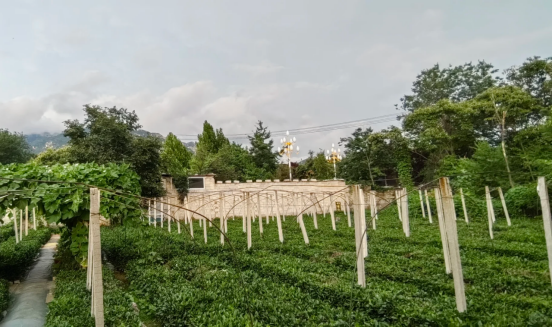
2. Temple Tea Ceremony Experience: Zen and Tea, Nurturing the Soul
As a sacred site for both Buddhism and Taoism, Mount Tai is home to many temples that preserve tea culture. In temples like Bixia Shrine and Puzhao Temple, visitors can experience the "Zen and Tea" journey. Monks will teach how to brew and taste tea with a calm and mindful attitude, helping people connect with the peacefulness and tranquility of their inner selves. The tea ceremony here is not just about tasting the tea but also a form of self-cultivation that complements the rich cultural heritage of Mount Tai.
3. Mount Tai Tea and Local Cuisine: A Taste of Local Tea and Food Culture
Mount Tai tea is not only enjoyable on its own but can also be paired with local specialties to create a unique tea and food culture. For example, Tai'an pancakes with the fragrant Tai Mountain Cloud Tea offer a perfect blend of crispness and sweetness; Tai Mountain tofu paired with the delicate Daughter Tea is refreshing and healthful. Additionally, many local tea houses offer tea feasts that incorporate tea into dishes, such as tea-smoked chicken and tea-infused tofu, further enriching the culinary experience of Mount Tai.
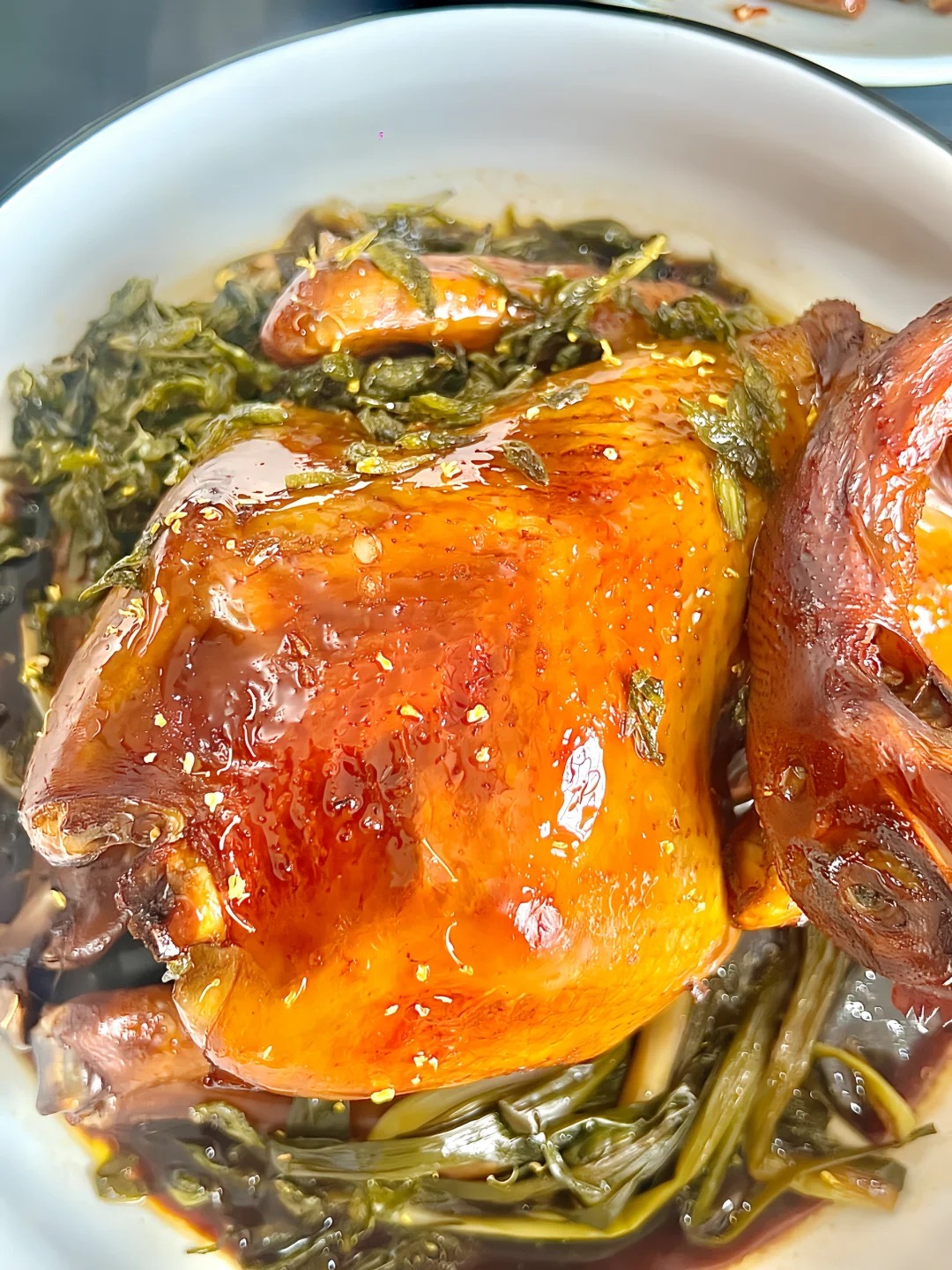
IV. Practical Travel Tips for Mount Tai
-
Best Time to Visit: Ideal for Hiking and Tea Culture Experiences
-
Spring (March to May): This is the best time to visit Mount Tai, as everything comes to life, with blooming flowers and lush tea gardens. It’s perfect for tasting fresh tea.
-
Autumn (September to November): The weather is cool, the red maple leaves paint the mountains, and the cloud mist enhances the beauty of Mount Tai. It’s also the peak season for tea picking and production.
-
Avoid Extreme Weather in Summer and Winter:
-
Summer (June to August): Hot weather can make hiking exhausting.
-
Winter (December to February): Cold temperatures and occasional snow create a beautiful but challenging hiking environment. Make sure to pack warm clothing and prepare for slippery paths.
-
-
Transportation and Accommodation Recommendations
-
By High-speed Train/Train: The main transportation hub is Tai'an High-speed Railway Station, with direct trains from Beijing, Shanghai, and Jinan. From the station, take a bus or taxi to the Mount Tai Scenic Area.
-
By Car: You can drive to Tai'an via the Jinghu Expressway. There are several parking areas near the scenic spots for self-driving travelers.
-
In the Scenic Area: Mount Tai offers eco-friendly buses and cable cars. You can choose to hike or take the cable car to Zhongtian Gate or Nantian Gate.
-
Hotels in Tai'an City: Ideal for visitors who prefer convenience, with complete facilities for a short stay.
-
Tea Garden Homestays at the Foot of the Mountain: Consider staying in a tea garden homestay, such as the Tai Mountain Eco-Tea Garden Homestay, where you can enjoy the peaceful beauty of nature while listening to birds and drinking tea.
-
Mountain Top Inns: For those planning to hike to the top to watch the sunrise, consider booking a mountain inn near the Nantian or Zhongtian Gates. Rooms are limited, so be sure to book in advance.
-
Travel Tips
-
Wear comfortable hiking shoes with a good grip to avoid fatigue and injury during the climb.
-
Bring appropriate clothes for physical activity, and pack a warm jacket in autumn and winter, as there’s a significant temperature difference between the base and the summit.
-
If you plan to hike in the dark to catch the sunrise, bring a flashlight or headlamp.
-
Carry some snacks, water, and possibly a hiking stick for added comfort.
-
When entering the tea gardens, speak softly to avoid disturbing the tea plants and respect the hard work of the tea farmers.
-
Follow the tea farmers’ guidance when picking or processing tea to avoid damaging the leaves and compromising quality.
-
While tasting tea, savor the smooth and fragrant taste of Mount Tai tea. Ask the tea master about tea culture and immerse yourself in the profound meaning of Zen tea.
V. The Harmony of Lushan Tea Aroma and Culture
Mount Tai is not only a grand mountain but also a place full of culture and peace. The tea from Mount Tai, like the "Daughter Tea" and "Cloud and Mist Tea," grows in the misty mountains. It has a gentle fragrance and a sweet, smooth taste, just like the way Mount Tai combines strength and calmness. Climbing the mountain challenges both the body and mind, but drinking Mount Tai tea brings inner peace. Whether picking tea leaves in the gardens or enjoying tea in the temples, it helps people relax and feel connected with nature. As the sun rises or sets over the mountain, sipping a cup of tea, you can feel the lasting spirit of Mount Tai—calm, deep, and peaceful.
